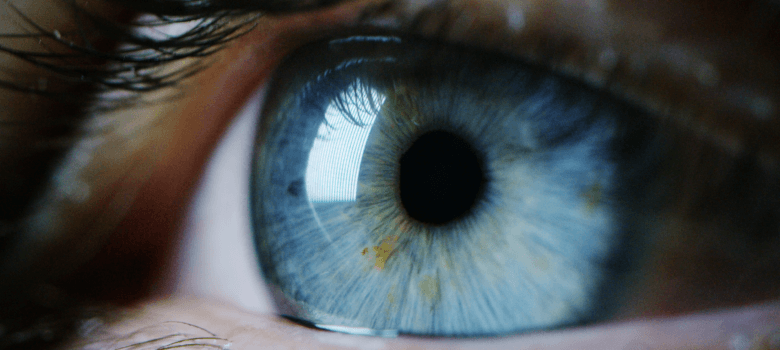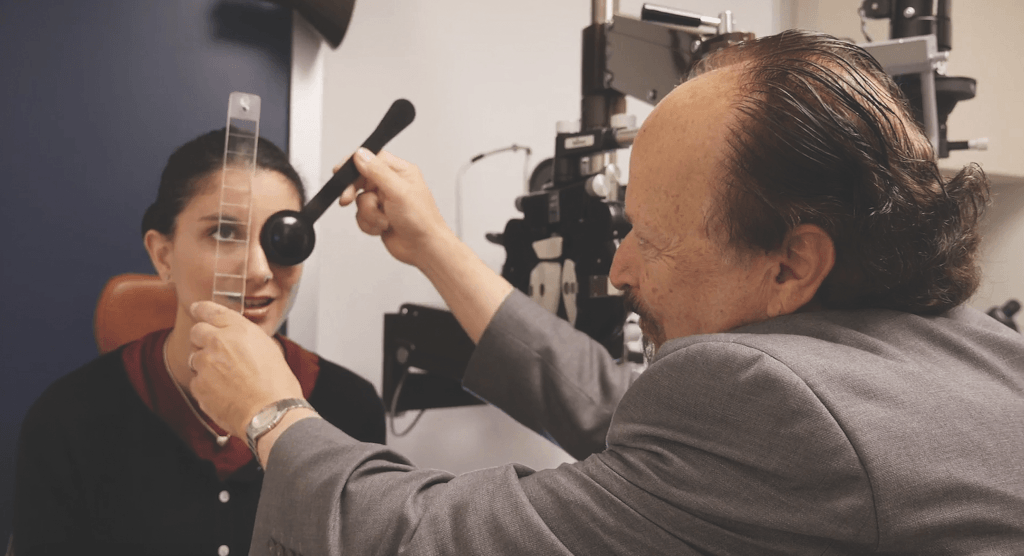

What Your Vision Reveals About Your Health
by Amelia Garrison
An annual eye exam may reveal an underlying autoimmune disease or medical condition. Taking charge of your health with an eye exam can identify diseases before it’s too late.
Early detection is key
Your vision may indicate an underlying health issue. Beginning in your 60s, it’s important to schedule an annual eye exam. Dr. Howard R. Krauss, an expert neuro-ophthalmologist at Pacific Neuroscience Institute (PNI), explained why.
Serious medical conditions, including multiple sclerosis, lupus, and many autoimmune diseases, do not have early symptoms. This can lead to more severe outcomes and limited treatment options for you and your loved ones. However, subtle changes in the eye can reveal a medical condition before symptoms start. These changes can be identified during a routine eye exam, helping doctors to treat the condition before it progresses.

“There are many things that can begin to go wrong, and one may not realize there’s a problem until it’s a more serious issue. A routine exam serves as an alert system. For any medical issue, early detection is key for the best treatment options.”
Dr. Howard R. Krauss
A silent killer

Some life-threatening medical conditions may even be detected by the naked eye, Dr. Krauss said.
High cholesterol is one of these conditions. Known as the “silent killer,” high cholesterol can lead to atherosclerosis, a life-threatening disease caused by plaque buildup on the walls of the arteries that obstructs blood flow. Bits of plaque can break loose and cause blood clots that may lead to heart attack or stroke.
High cholesterol can cause visible fatty deposits in the eyelid, and even a blue or yellow ring around the cornea, Dr. Krauss explained.
“For some people with high cholesterol, you’ll see yellow fatty deposits forming in the eyelid, but an eye exam can allow us to see how much of a problem it is.”
Dr. Howard R. Krauss
Take charge of your eye health
If you have or suspect that you have high cholesterol, an eye exam can determine how severe your condition is. At PNI’s Pacific Eye, Ear, and Skull Base Center, our leading experts treat an extensive range of eye and vision disorders. Our collaborative approach ensures that each patient receives the comprehensive attention required for successful treatment and recovery.
Conditions we treat:
- Cataracts
- Double Vision
- Dry Eye & Excessive Tearing
- Eyelid or Orbital Injury
- Glaucoma
- Ptosis (Droopy Eyelid)
- Strabismus
- Thyroid Eye Disease
- Tumors Affecting Vision or Eye Movement
More information: 310-829-8701
Read the full article on SilverSneakers.com.
About Dr. Howard R. Krauss
Dr. Howard R. Krauss is one of the four founders of PNI, and a Director of the Pacific Eye, Ear, and Skull Base Center. He is a surgical neuro-ophthalmologist specializing in diagnostic neuro-ophthalmology, including visual field analysis and ocular coherence tomography, as well as strabismus, orbital and anterior skull base surgery. He cares for all varieties of eye and vision problems including eyelid disorders, ocular and orbital pain, double vision, neurologic or brain disorders, circulatory disorders and inflammation, injury and tumors of the eye socket (orbit), face, head, or brain.
Related Links:
About the Author

Amelia Garrison
Amelia Garrison is the Marketing Specialist at Pacific Neuroscience Institute (PNI). Well versed in community outreach strategy and implementation, she leads the PNI blog, newsletter, and digital communications. Amelia oversees PNI's reputation management and community sponsorships.
Last updated: January 13th, 2022

